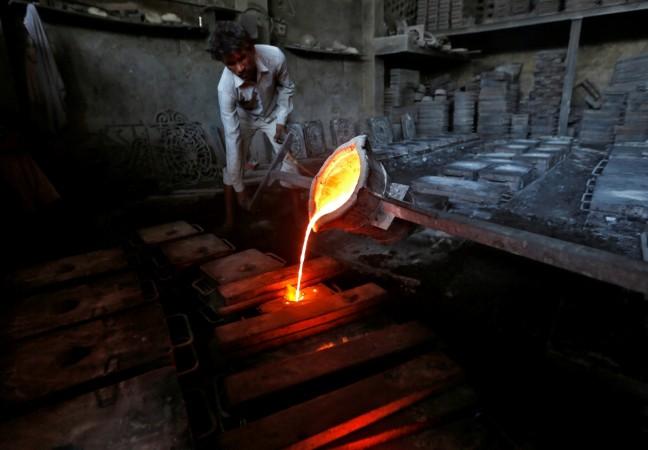
Indian factory growth cooled in May as new orders expanded at a more modest pace, but manufacturers were able to raise prices slightly, according to a private survey.
The Nikkei Manufacturing Purchasing Managers' Index, compiled by IHS Markit, fell to 51.6 in May from April's 52.5, marking its fifth month above the 50 level that separates growth from contraction.
Output expanded at the softest pace since February but remained moderate.
The new orders sub-index, which reflects both domestic and foreign demand, fell to 52.6 from 53.8 in April. Export orders contracted for the first time in four months, albeit marginally.
"The upturn in the Indian manufacturing sector took a step back in May, with softer demand causing slower expansions in output and the amount of new work received by firms," said Pollyanna de Lima, economist at IHS Markit.
"Moreover, there was a renewed decline in new export orders."
While companies were able to raise selling prices, the increase was modest, reinforcing views that inflation may remain below the Reserve Bank of India's medium-term target of 4 percent, giving it room to ease monetary policy.
Inflation eased in April to 2.99 percent from 3.89 percent in March.
Also helping the inflation outlook, monsoon rains have arrived earlier than anticipated, with the meteorological department predicting normal downpours this year.
"With inflation under control and manufacturing growth below par, we may see the RBI changing neutral monetary policy stance to accommodative in coming months in order to support the economy," de Lima said.
While the central bank is expected to leave rates unchanged at 6.25 percent in its June meeting, the Monetary Policy Committee will adopt a less hawkish tone in its statement, according to a Reuters poll of 60 economists.
Analysts think that a policy hold is still on the cards, despite a shock slowdown in economic growth reported on Wednesday.
The economy expanded 6.1 percent in the January-March period, far slower than expectations for 7.1 percent, with capital investment showing no sign of reviving.
However, consumer spending is likely to pick up before the government implements a multi-rate Goods and Services Tax from July 1, with some items expected to be taxed at 28 percent or higher.

















